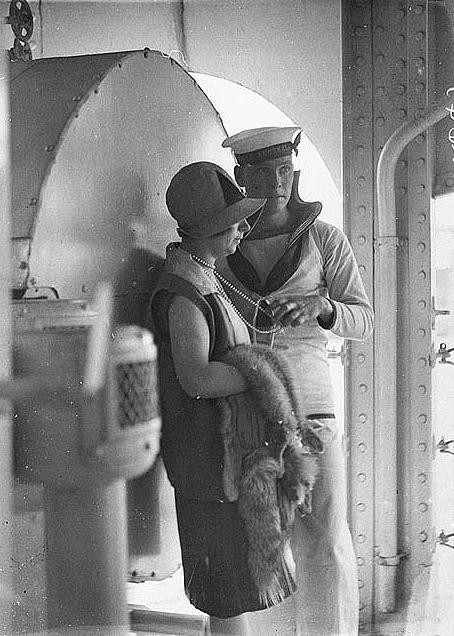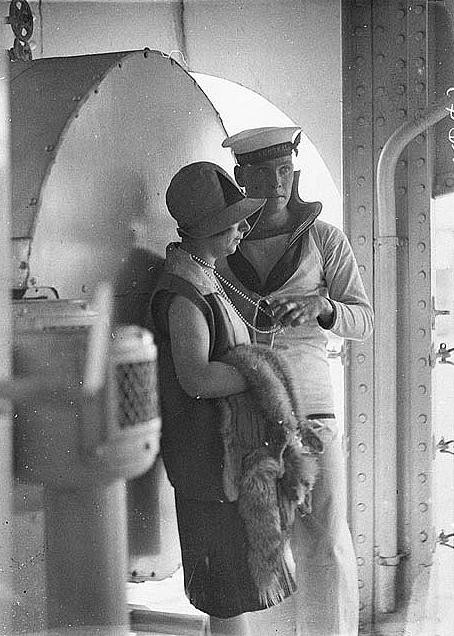“First I Cry for His Departure, Then Laugh Because I’m Free”


The current issue of Lapham’s Quarterly is themed “The Sea,” and it is just brimming with historical gems — like a 1250 Old Norse father-son dialogue about the kraken (“more like an island than a fish”), a 2000-year-old Pliny the Elder explanation of dolphins (“he is charmed by melodious concerts and more especially by the notes of the water organ”), and this amazing poem by the wife of a Nantucket sailor, discovered in a journal she kept during a whaling trip in 1855:
I have made up my mind now to be a sailor’s wife,
To have a purse full of money and a very easy life,
For a clever sailor husband is so seldom at his home,
That his wife can spend the dollars with a will that’s all her own,
Then I’ll haste to wed a sailor, and send him off to sea,
For a life of independence is the pleasant life for me,
But every now and then I shall like to see his face,
For it always seems to me to beam with manly grace,
With his brow so nobly open, and his dark and kindly eye,
Oh my heart beats fondly toward him whenever he is nigh,
But when he says, “Goodbye, my love, I’m off across the sea,”
First I cry for his departure, then laugh because I’m free,
Yet I’ll welcome him most gladly, whenever he returns
And share with him so cheerfully all the money that he earns
For he’s a loving husband, though he leads a roving life
And well I know how good it is to be a sailor’s wife.
The poem, aptly, is called “The Good Life.”